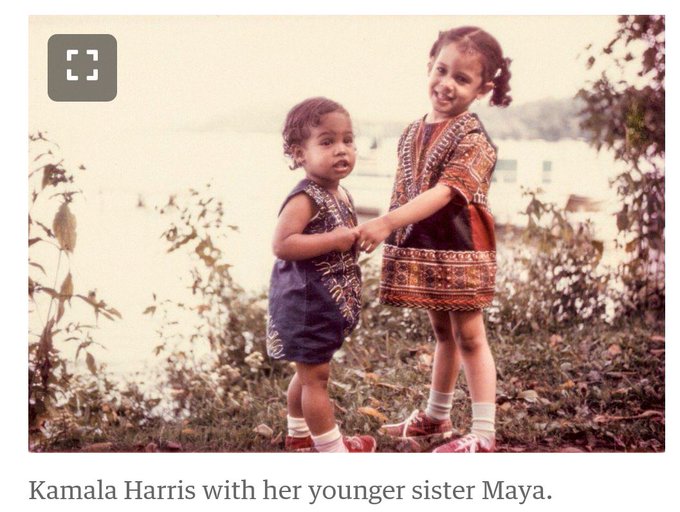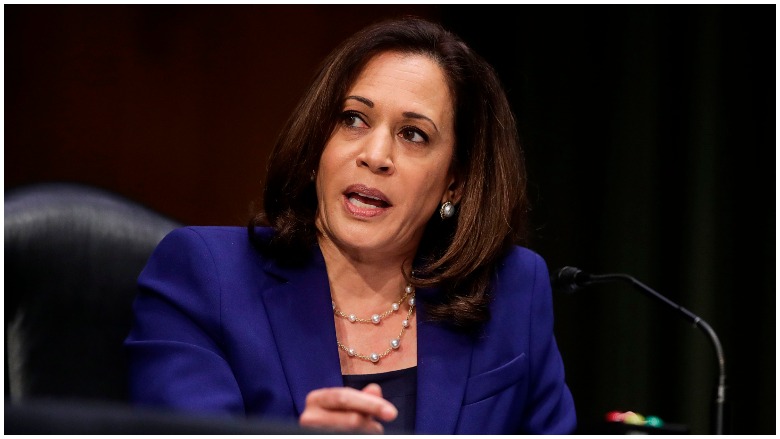
Senator Kamala Harris has joined the 2020 Democratic presidential ticket as Joe Biden’s running mate. First elected to the Senate in 2016, Harris was viewed as a rising star within the party and attracted national attention for her tough questioning style during congressional hearings.
Harris has talked about how her family influenced her decision to pursue a career in public service. As the daughter of immigrants from India and Jamaica, she was exposed to civil rights activism from an early age and was inspired by her progressive maternal grandparents.
Here’s what you need to know:
1. Kamala Harris’ Parents Met Through a Shared Network of Activists at UC Berkeley in the Early 1960s
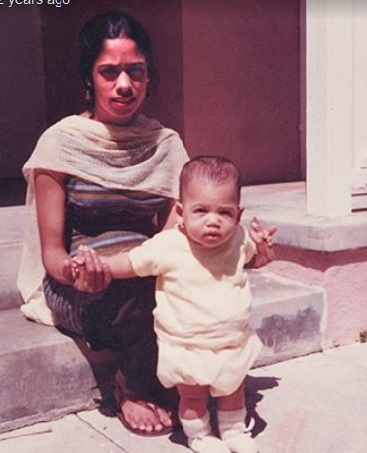
Kamala HarrisKamala Harris and her mother.
Harris’ parents met while they were both students at UC Berkeley. After graduating from the University of Delhi with her bachelor’s degree at age 19, Shyamala Gopalan was accepted into a graduate program at Berkeley. She moved to the United States in 1958 and went on to earn a doctorate in nutrition and endocrinology by age 25. According to the Los Angeles Times, Gopalan’s parents were supportive of the move and used retirement savings to help their daughter pay for tuition.
Donald Harris, who had grown up in Jamaica, earned his undergraduate degree from the University College of the West Indies, according to his professional bio. He moved to Berkeley in 1960 to pursue a Ph.D. in economics.
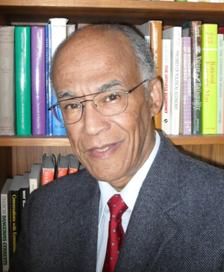
Donald Harris, father of Senator Kamala Harris.
While students at Berkeley, Harris’ parents both became active participants in the civil rights movement. As she explained in her 2019 memoir, The Truths We Hold, Harris’ mother was welcomed into and supported by the Black community. “In a country where she had no family, they were her family — and she was theirs,” Harris wrote.
Gopalan met her future husband through their shared network of college activists. As the Mercury News reported in 2019, Gopalan and Donald Harris were both members of a group of students that gathered weekly to discuss Black writers, debate politics and talk about global issues.
2. Harris’ Parents Hosted Civil Rights Leaders at Their Home & Brought Their Daughters to Marches
Harris’ parents tied the knot in 1963 while they were still in school. Gopalan gave birth to Kamala in 1964, the same year Gopalan earned her Ph.D. Younger daughter Maya arrived two years later. Harris described her mother’s toughness in her memoir, writing that according to “family lore,” Gopalan kept working “right up to the moment of delivery – one time, her water broke while she was at the lab.”
Gopalan and Donald Harris brought their young daughters along with them as they continued to fight for equality. Harris and her sister grew up listening to political discourse at their home, as their parents hosted civil rights leaders for weekly discussions, the New York Times reported. Harris wrote in her memoir that she has memories of her mother pushing her in a stroller amid large crowds at marches. She further wrote of her parents:
They went to peaceful marches where they were attacked by police with hoses. They marched against the Vietnam War and for civil rights and voting rights. They went together to see Martin Luther King Jr. speak at Berkeley and my mother had a chance to meet him. She told me that at one anti-war protest, the marchers were confronted by the Hell’s Angels. She told me that at another, she and her friends were forced to run for safety, with me in a stroller, after violence broke out against the protesters.
3 Harris Said Her Maternal Grandfather Was Part of the Movement For Indian Independence From Britain & Was a Lifelong Civil Servant
One of the most influential people in Harris’ life was her maternal grandfather, P.V. Gopalan. He spent the majority of his professional career working in public service. He worked his way up and became a diplomat in the Indian government.
Harris said one of her earliest memories of her grandfather was from a visit to Lusaka, Zambia, when she was about five years old. Gopalan and Harris’ grandmother, Rajam, were living there as part of a diplomatic mission. Gopalan was sent to help Zambia settle refugees coming from Rhodesia in modern-day Zimbabwe, after the country became independent from Britain.
Gopalan started his political career in the 1930s while Britain still ruled India. There appears to be some disagreement within the family about what role Gopalan played in the push for independence. Harris wrote in The Truths We Hold that her grandfather was part of the movement to take back control of India from the British. But Harris’ uncle, G. Balachandran, told the Los Angeles Times that he doubts his father had an instrumental role because he would have been fired from his job had he openly expressed anti-British views. Balachandran told the newspaper there was no formal record of Gopalan “having been anything other than a diligent civil servant.”
Regardless, Gopalan held strong convictions about civil justice and passed those ideas on to his granddaughter. She explained in a 2009 interview that she fondly remembered taking walks along the beach with her grandfather as he discussed politics with other retired government officials. “They would talk about politics, about how corruption must be fought and about justice. They would laugh and voice opinions and argue, and those conversations, even more than their actions, had such a strong influence on me in terms in terms of learning to be responsible, to be honest, and to have integrity,” Harris explained.
Harris also told the Los Angeles Times that she and her grandfather wrote letters to each other until he passed away in 1998. She has described her grandfather as “one of my favorite people in my world.”
Harris’ maternal grandmother, Rajam, was also a major influence. She was a community organizer in India and encouraged her children to pursue successful careers. Harris wrote in her memoir:
My mother had been raised in a household where political activism and civic leadership came naturally. Her mother, my grandmother, Rajam Gopalan, had never attended high school but she was a skilled community organizer. She would take in women who were being abused by their husbands, and then she’d call the husbands and tell them they’d better shape up or she would take care of them. She used to gather village women together, educating them about contraception.
My mother inherited my grandmother’s strength and courage. People who knew them knew not to mess with either. And from both of my grandparents, my mother developed a keen political consciousness. She was conscious of history, conscious of struggle, conscious of inequities. She was born with a sense of justice imprinted on her soul.
4. Harris Credits Her Mother For Raising Her Daughters to be ‘Confident, Proud Black Women’
Harris’ parents separated when she was still a small child. In The Truths We Hold, Harris pondered whether her parents’ marriage would have lasted had they gotten married at an older age and been “more emotionally mature.” Donald Harris was Gopalan’s first boyfriend and Harris said the union “as much an act of rebellion as an act of love” for her mother. Gopalan’s family had followed a long tradition of arranged marriages and she had bucked that trend when she married Donald Harris.
The couple separated when he accepted a job at the University of Wisconsin and formally divorced in the early 1970s. Donald Harris moved back to California in 1972 when he accepted a position teaching economics at Stanford University.
Harris explained that she and sister Maya spent weekends and summers with their father. But she credits her mother for “shaping us into the women we would become.”
Gopalan took her daughters to India every couple of years to visit family. Harris said her mother and Indian relatives made it a priority to teach Kamala and Maya about Indian culture and instill a sense of pride in their heritage. But Harris said her mother was also aware of how her daughters would be viewed in the United States and worked to prepare them for future challenges they could face:
My mother understood very well that she was raising two black daughters. She knew that her adopted homeland would see Maya and me as black girls, and she was determined to make sure we would grow into confident, proud black women.
Harris’ cousin, Sharada Balachandran Orihuela, told the Los Angeles Times in 2019 that Gopalan also taught her daughters to fully embrace both sides of their heritage. “There was never a question that they were Indian. I don’t think she felt conflicted about it. She told the girls, ‘You are Indian; you are black. You don’t have to prove that you’re one or the other.'”
5. Harris Followed Her Grandfather’s Example & Chose a Career in Civil Service
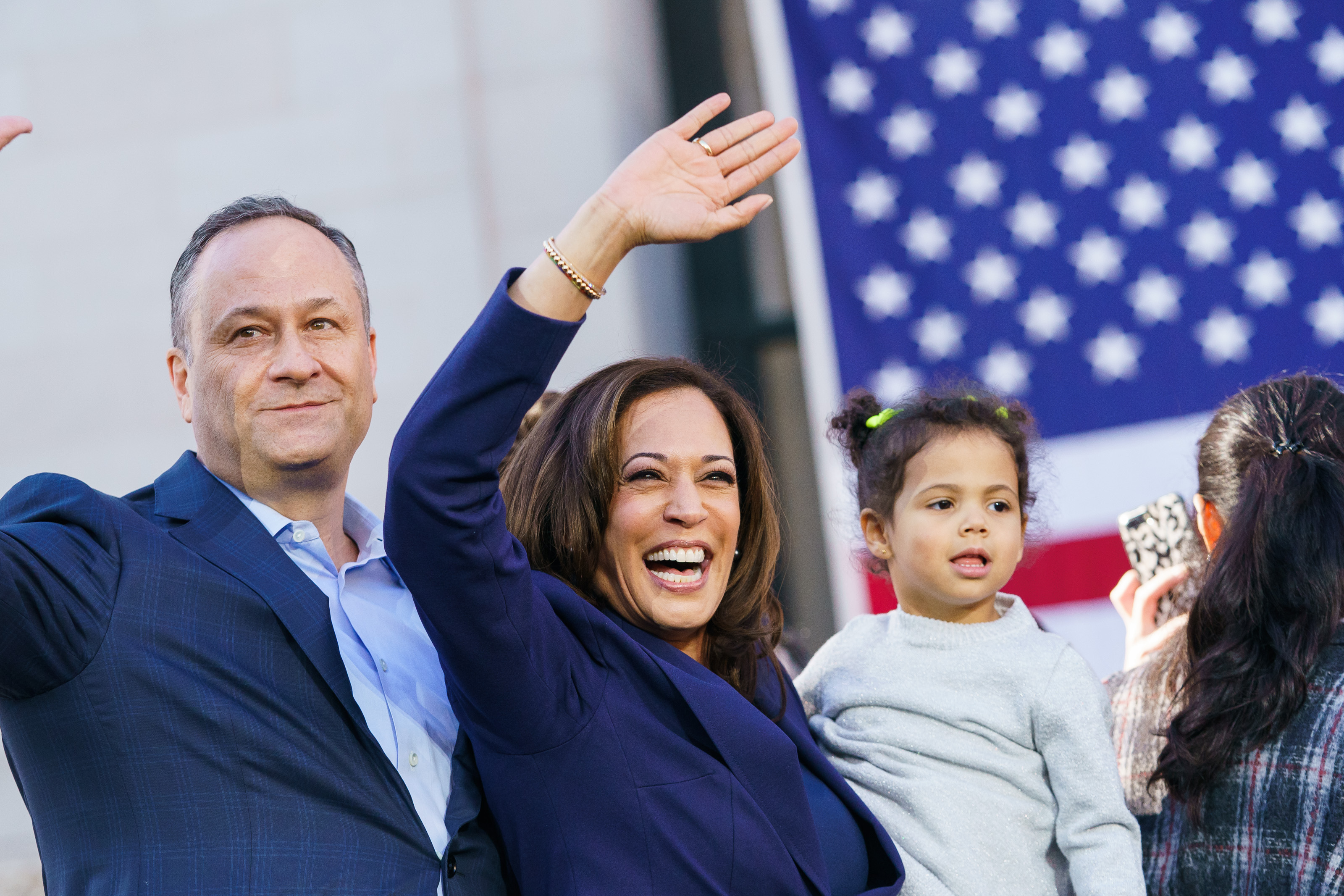
GettySenator Kamala Harris (D-CA) waves to her supporters with her husband, Douglas Emhoff and her niece, Amara Ajagu, 2.
As Harris grew up, she decided to take a different stance on enacting change than her parents had done. Rather than become an activist, Harris chose to become part of the system in order to enact change from within. She recently told the New York Times, “I am the child of people who, like those today, were marching and shouting on the streets for justice. When I made the decision to become a prosecutor, it was a very conscious decision. And the decision I made was, I’m going to try and go inside the system, where I don’t have to ask permission to change what needs to be changed.”
Early in her career, Harris worked as a deputy district attorney in Alameda County, California, prosecuting sex crimes. She explained in an editorial for Essence magazine in 2019 that she made sure her job involved more than just punishing guilty defendants. Harris said she also wanted to do more for the survivors. She and her colleagues launched a counseling program for victims of family violence and helped to open a safe house in San Francisco for women and girls.
Harris added in the piece, “Skepticism of people who have worked within this broken system is reasonable. As the daughter of parents involved in the civil rights movement, I was born with that skepticism. But skepticism does not give me license to abdicate the responsibility I felt to champion change and do the work of justice.”
READ NEXT: Get to Know More About Kamala Harris’ Family

